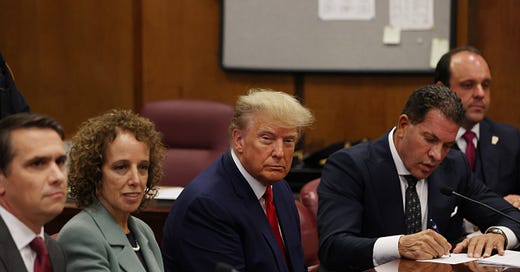The media may be acting like Donald Trump’s arrest is unprecedented, but in some ways it isn’t, and the story of why holds lessons for how we ought to approach this moment in history.
Let’s travel back in time to 1872
The Civil War was over. The U.S. was working through the implications of the emancipation of slaves and the pseudo-end of the Southern plantation model of human exploitation. Nonetheless, back in victorious Washington D.C., the White House still had the feel of a rural home set amongst fallow fields.
The White House of the late 1800’s wasn’t the White House of today, with its innumerable fences and barricades, Secret Service patrols and surreptitious surveillance (and a bowling lane, which I frequented in my previous job). Instead, back then the President’s home was a simpler, but also more welcoming and open place, with members of the public coming and going as they pleased.
“A crush of visitors besieged the White House stairways and corridors, climbed through windows at …
Keep reading with a 7-day free trial
Subscribe to UnfairNation to keep reading this post and get 7 days of free access to the full post archives.





